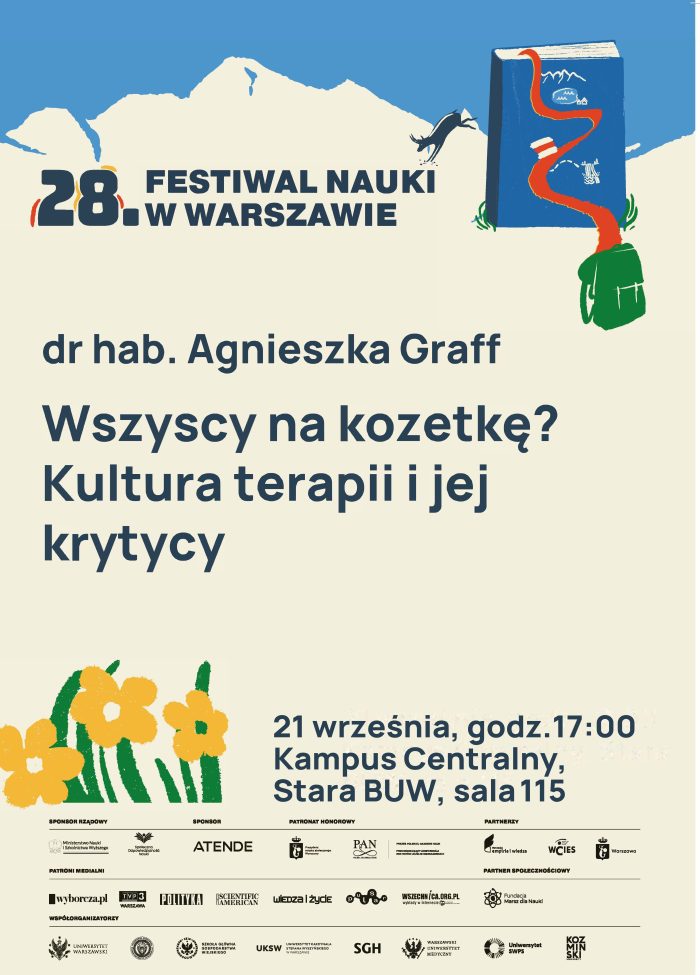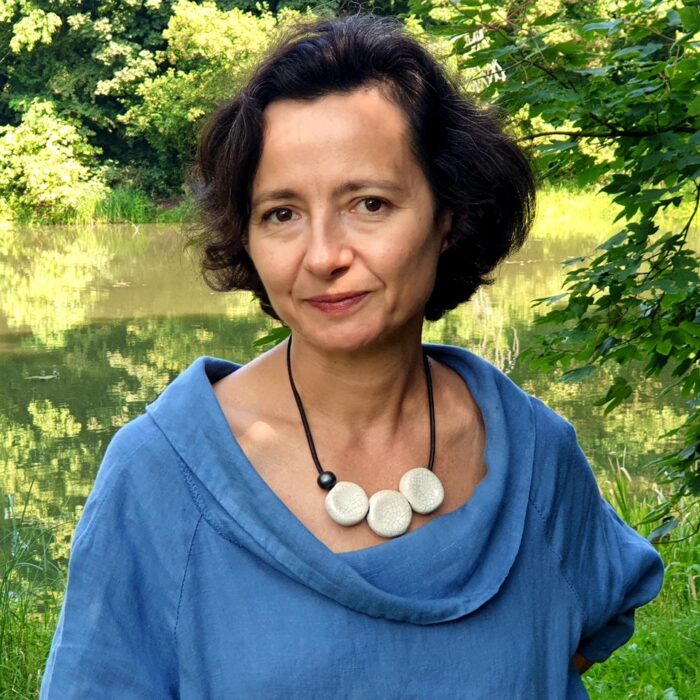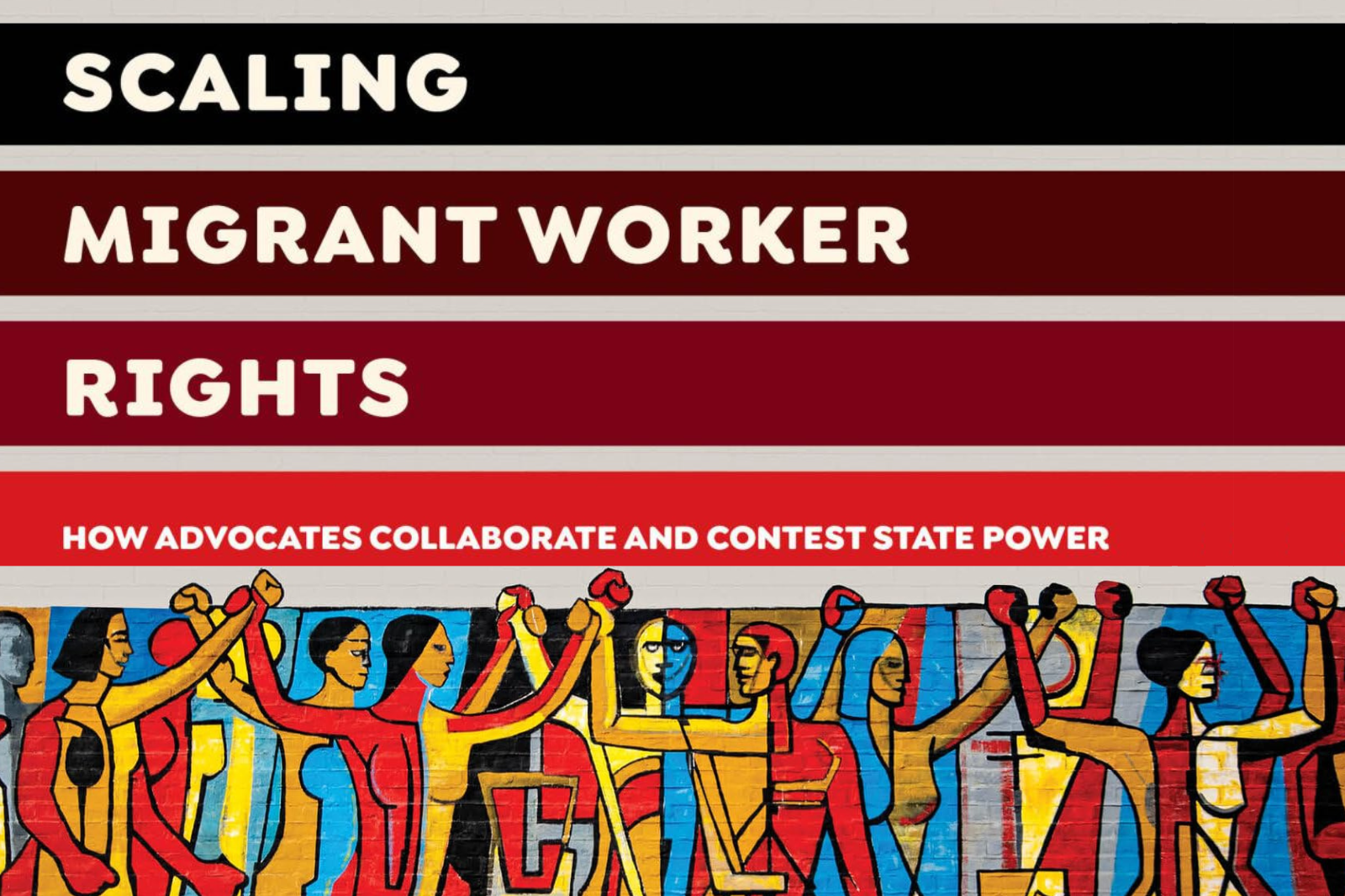Serdecznie zapraszamy na wykład dr hab. Agnieszki Graff, “Wszyscy na kozetkę? Kultura terapii i jej krytycy“, który odbędzie się w ramach 28. Festiwalu Nauki!
21 września, godz. 17:00
Kampus Centralny, Stara BUW, Krakowskie Przedmieście 26/28, sala 115
wstęp wolny
3 OZN

Dyskurs terapeutyczny wydaje się być horyzontem współczesnej kultury – nieustannie namawia się nas do podjęcia „pracy nad sobą” i „samorozwoju”, koniecznie pod okiem eksperta- terapeuty. W psychologii szukamy wyjaśnień zjawisk społecznych i politycznych. Proponuję krytyczny namysł nad tym zjawiskiem. Jakie są historyczne źródła kultury terapeutycznej? I jak rozumieć jej związek z kulturą późnego kapitalizmu? Przyjrzymy się narodzinom i ekspansji psychologii w kulturze zachodniej (zwłaszcza amerykańskiej) i poznamy dwie rywalizujące ze sobą orientacje polityczne w krytyce kultury terapeutycznej – lewicową i konserwatywną.

dr hab. Agnieszka Graff – kulturoznawczyni i publicystka, absolwentka Amherst College i Oksfordu, profesorka w Ośrodku Studiów Amerykańskich Uniwersytetu Warszawskiego. Oprócz „Świata bez kobiet” (2001) – książki, której poszerzone wydanie ukazało się w 2021 roku po dwudziestu latach nakładem wydawnictwa Marginesy – wydała też: „Rykoszetem. Rzecz o płci, seksualności i narodzie” (W.A.B. 2008), „Matkę feministkę” (Wydawnictwo Krytyki Politycznej 2014) oraz „Memy i graffy. Dżender, kasa i seks” (Wydawnictwo Krytyki Politycznej 2015, wspólnie z Martą Frej).
W serii z Różą Krytyki Politycznej ukazał się autobiograficzny wywiad rzeka pt. "Graff. Jestem stąd” (2014; współautorem jest Michał Sutowski). Publikowała teksty naukowe w takich czasopismach jak: „Signs”, „Public Culture”, „East European Politics and Societies”, „Feminist Studies”, „Czas Kultury” i „Teksty Drugie”. Współzałożycielka Porozumienia Kobiet 8 Marca, członkini rady programowej stowarzyszenia Kongres Kobiet. Autorka polskiego przekładu „Własnego pokoju” Virginii Woolf.



